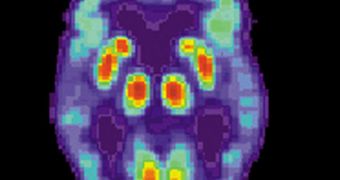In a new scientific study conducted by Canadian researchers, it was discovered that seniors who have a high risk of developing Alzheimer’s disease can avoid the onset of the condition for a prolonged period of time by training their brains to rewire themselves. This also helps keep memory loss to a minimum.
Experts at the University of Montreal say that, under natural circumstances, the human brain is set to lose between 5 and 10 percent of its mass between the ages of 20 and 90. This means that, once a person reaches their prime, it's all downhill from there.
But the brain is none too pleased to lose this weight, and so it compensates for this by employing two protective mechanisms, called plasticity and redundancy. These do not prevent all cells from being lost, but they do carry other benefits.
Plasticity, for example, is the term experts use to describe the brain's ability to change and reorganize itself according to situations, events and conditions it's subjected to over the course of a lifetime.
“It was long thought that brain plasticity declined with age, however, our study demonstrates that this is not the case, even in the early stages of Alzheimer’s disease,” explains Dr. Sylvie Belleville, PhD.
The University of Montreal expert, who is also the principal author of the new study, says that certain neurons can have their activity redirected to memory duties for long periods of time, through simple memory training exercises.
This technique is described in the latest issue of Brain: A Journal of Neurology, PsychCentral reports. “Our research has validated our hypothesis,” the scientist says.
“Not only were we able to use functional imaging to observe this diversification, but we also noted a 33 percent increase in the number of correct answers given during a post-training memory task by subjects with mild cognitive impairment who, incidentally, are 10 times more likely to develop Alzheimer’s disease,” she adds.
This study is the first to provide solid scientific evidence for the enhanced plasticity hypothesis. All participants in the new study had their brains analyzed with a technique called functional Magnetic Resonance Imaging (fMRI).
Fifteen healthy seniors and 15 older people with mild cognitive impairment were used in this research to demonstrate that validity of using plasticity as a means to delay and reduce memory loss/
“Analysis of brain activity during encoding as measured before and after the training program, indicates that increased post-training activation in the right inferior parietal gyrus is associated with post-intervention improvement,” Belleville says.
“The healthy area of the brain has taken over for the area that is compromised,” she concludes.

 14 DAY TRIAL //
14 DAY TRIAL //